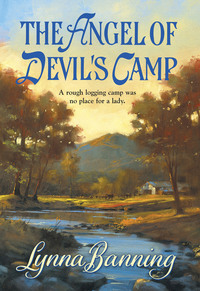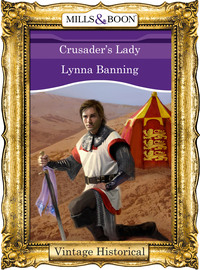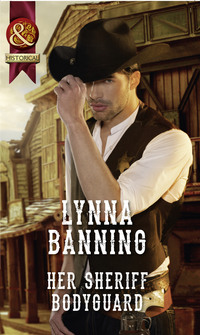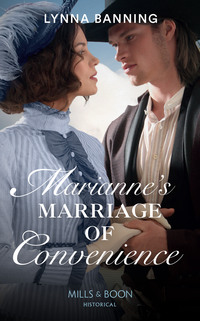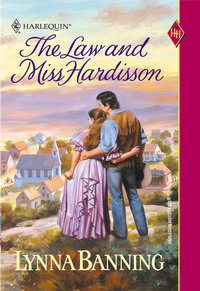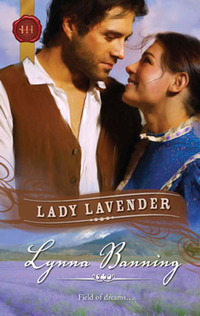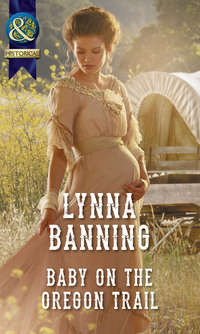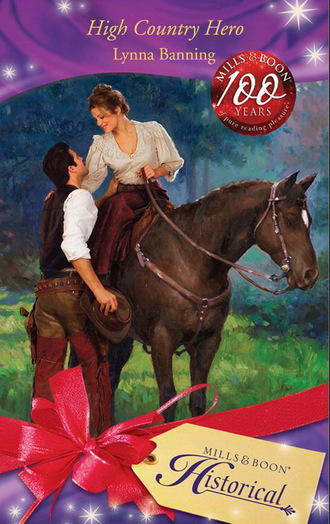
Полная версия
High Country Hero

Was he a brute? Or a gentleman?
His skin was tanned to the colour of her leather saddle, his chest and back as well. And he wore no drawers…!
An irrational thought flicked through her mind. Could a man’s backside get suntanned right through his jeans?
A brute, she decided. A man who chased others for money. A bounty hunter who would turn in his own father for a price. Hard-headed and hard-hearted.
Then why did he want to save his prisoner’s life?
She could feel him staring at her, asking a silent question. It took all her courage to meet his gaze. His eyes were hard. Calculating. And unusual.
There was something undisciplined about him. Primitive, like a wild animal. A wolf—that was it. A hungry wolf. One who hunted alone.
Lynna Banning has combined a lifelong love of history and literature into a satisfying career as a writer. Born in Oregon, she has lived in Northern California most of her life. After graduating from Scripps College she embarked on a career as an editor and technical writer, and later as a high school English teacher. An amateur pianist and harpsichordist, Lynna performs on psaltery and harp in a medieval music ensemble and coaches in her spare time. She enjoys hearing from her readers. You may write to her directly at P.O. Box 324, Felton, CA 95018, USA, or at carolynw@cruzio.com. Visit Lynna’s website at www.lynnabanning.com
Recent novels by the same author:
HARK THE HARRIED ANGELS
(part of One Starry Christmas anthology) THE SCOUT
HIGH COUNTRY HERO
Lynna Banning

HIGH COUNTRY HERO
MILLS & BOON
Before you start reading, why not sign up?
Thank you for downloading this Mills & Boon book. If you want to hear about exclusive discounts, special offers and competitions, sign up to our email newsletter today!
SIGN ME UP!
Or simply visit
signup.millsandboon.co.uk
Mills & Boon emails are completely free to receive and you can unsubscribe at any time via the link in any email we send you.
For my niece, Leslie Yarnes Sugai.
With grateful thanks to Suzanne Barrett,
Kathleen Dougherty, Susan Renison, Tricia Adams,
Bonnie Hamre, Brenda Preston, Carol Crosby
and David Woolston
Chapter One
Russell’s Landing, Oregon 1884
The instant Sage turned the corner onto Main Street, she saw the woman in purple calico barreling down the board sidewalk toward her. Oh, no. Not Mrs. Benbow. The plump seamstress was the biggest busybody in town.
Sage stopped, smiled and prepared to have her ears burned by the latest gossip.
“Ain’t seen it yet, have ya, honey?”
“Seen what?”
“Why, the newspaper, of course. The Willamette Valley Voice. My stars, that man has a tongue somewhere’s between a rattlesnake and a grizzly bear.”
“Mr. Stryker, you mean?”
“Who else?” Nelda Benbow’s voice was sharp with gleeful outrage. “That man gets the whole town in an uproar every single Thursday. Mind you, I don’t think he really believes half the things he publishes in that puffed-up rag of his, but the harm’s done soon as the ink’s dry. And the hurt,” she added in a gentler tone. She sent Sage a pitying look.
“Hurt,” Sage echoed. “Who has Mr. Stryker crucified this time?”
“Best you set down afore you read it, Sage dear.”
The older woman gave her a quick pat on the shoulder and sped on down the walkway toward Duquette’s Mercantile.
It? What “it”?
Sage had troubles enough without worrying over who Mr. Stryker’s latest victim was. Last Thursday it had been Miles Schutte, head of the school board. In an editorial entitled The Three R’s—Rumsoaked, Ridiculous and Rabble-rousing, the newspaper editor had lambasted Mr. Schutte with a stream of inflammatory adjectives and innuendo, all because he had drunk a toast at the school board meeting in honor of the new teacher, Miss Euphemia Prescott. Last year’s schoolmarm, Molly Landon, had gotten married in the spring, and married women weren’t allowed to teach in Douglas County.
Or anywhere else in Oregon, as far as Sage knew. The restriction was positively medieval. One would think mankind would be more enlightened near the end of the nineteenth century.
Perhaps Mr. Stryker would address this inequity? Her neatly buttoned shoes carried her straight to the newspaper office.
At her entrance, the editor rose to his feet. “Good morning, Miss West. Oh, I beg your pardon. Dr. West.”
A thrill of pure pride shot through her. Dr. Sage West. It had taken her six grueling years, and she wanted everyone in town to celebrate her accomplishment. For the first time since its founding, Russell’s Landing had a physician.
“Mr. Stryker.” She smiled at the bony, stern-faced man who stood across the polished wood counter from her. He and his wife, Flora, had never had children of their own. When Sage was growing up, Friedrich Stryker had always slipped lemon drops to her when she had come into the newspaper office with her father.
She dug a five-cent piece from her reticule, dropped it on the counter and scanned the front page. Mugwumps Desert Blaine for Cleveland. Railroad Tunnel Collapses. Republicans Bicker over Tariff.
“Article’s on page three,” the graying newspaper editor said in a dry voice. “My editorial’s on page seven.” He pocketed the coin and retreated to his desk.
Sage flipped the paper open and buried her nose in the third page. The still-wet black ink smelled sharp and oily. Engrossed, she moved to the shop entrance, pushed the door open and stepped out onto the boardwalk.
Recently returned from Philadelphia where she completed her medical studies, Miss Sage Martin West, daughter of Mayor William West and his lovely wife, Henrietta…
She stumbled over a loose board on the walkway.
…away in the East for the past five years…
“Six years,” she murmured. “Almost seven. Oh, excuse me, Miss Nyland. I didn’t see you come out of the mercantile.”
“Reading the article about yourself, are you, Sage?”
“Yes. My, it does seem strange, though. As if I’m somebody else!”
“Come across Friedrich’s editorial yet?”
“No, I—”
“Well, don’t take it too hard, dear.”
Miss Nyland whisked into the millinery shop, where a jaunty straw sun hat with a purple feather hung in the display window. The woman did love her bonnets, Sage remembered. She had worn them even when she taught school, and that was—my gracious!—thirteen years ago! Now Miss Nyland’s prize pupil at Grove School was grown up and wearing bonnets herself. Or should be. Absently Sage smoothed her free hand across her bare head.
She shrugged and went on down the street, her eyes glued to the typeset lines.
…Dr. West has opened her new medical practice at the corner of Maple Falls Lane and Cottage Road, next to the old McConnell homestead.
“Yes!” she exulted. She had her own house, her own reception parlor, her own consulting room.
…office hours are from…
Yes. Oh yes. She was a real doctor at last. And she had come home to keep the town she’d grown up in safe from disease and medical disasters.
She gave a little skip, stepped off the boardwalk and turned to the editorial. The warm June breeze rattled the open pages in front of her face, and she gripped them to keep them still without taking her eyes off the print. Halfway across the rutted road, she came to an abrupt stop.
“’Dried up old maid’?” she yelped. “’So plain a man would have to be blind to…’”
Oh!
She wasn’t “plain.” She was…well, tall. With a high forehead, a nose she’d always wished were a bit shorter, and a mass of hair the color of a muddy horse trough. “But my eyes are nice,” she said aloud.
Anyway, what difference did it make what she looked like? She was a good doctor. A very good doctor.
“I have studied for years!” she announced to the empty street.
A horse tied up in front of the hotel lifted its head and gazed at her with one large dark eye. “Well, I did,” she reiterated. The horse lowered its muzzle into the feed bag lashed to the rail.
Sage moved on across the road, settled herself in one of the rocking chairs in front of the mercantile and snapped open the newspaper again.
Well. Well! “Oh, for pity’s sake!”
Women should be wives and mothers…steadfast at the cradle, happy at the hearth.
“Cooks and nursemaids, is that it, Mr. Stryker? Laundresses and seamstresses and teachers, but not physicians?”
Why not?
She rocked furiously back and forth, then jumped to her feet, crumpled the sheets of newsprint into a ball and retraced her steps to the newspaper office as fast as she could. Before she cleared the doorway, words were tumbling past her lips.
“I thought you were my friend, Mr. Stryker! I thought you—”
Friedrich Stryker leaped from his desk chair and backed away.
“—liked me! Believed in me!”
The man looked stricken. “Well, I do, Miss Sage. I do.”
“But you don’t think I should be a doctor, is that it?”
“Yes, ahem. Exactly my thoughts. You’re a woman—”
She gave him no time to finish. “So what if I am female? I want to be a physician, not a nurse. I’ve wanted to be a physician ever since I was ten years old and my baby brother died. A nurse could not have saved him. A doctor would have known what to do.”
“Well, now, Miss Sage, that is partly—”
She pinned him with her oh-yes-I-can look. “You’re just like my professors at medical school. ‘Take up nursing,’ they advised. ‘Get married. Bear children.’”
“Miss Sage, don’t you aim to get married at all?”
“No, I do not,” she snapped. “First of all, nobody has asked to marry me. And even if someone does, I’ll turn him down. A doctor, especially a woman doctor, scarcely has time for her own needs, let alone those of a family.”
“Well now, that’s just my point.” His voice was steadier now.
Sage warmed to her subject. “There are women doctors all over this country—in Massachusetts and Indiana and Missouri and even Idaho. Just who do you think you are, telling us what we can and cannot do?”
The editor put a trembling hand to his face. “I—I’m a journalist, Miss, uh, Dr. West.”
“Why on earth would you write such claptrap?” she demanded. And after all those lemon drops…
A guilty look crossed Mr. Stryker’s face. “Newspapers have been selling pretty good lately,” he said in a tight voice. “That’s why.”
“Then this town is more backward than I thought.” She heaved the balled-up newspaper across the counter at him, gathered up her peach-sprigged muslin skirt in both hands and exited with as much decorum as she could manage.
The door did not close properly. She reversed direction, reopened it and this time made sure it shut with a satisfying slam.
Outside, she clenched her fists at her sides and began to count. By the time she reached sixty she had stopped shaking and regained power of speech. She walked on past the mercantile and Essie Ramsey’s millinery shop, her shoes hitting the boardwalk so hard her feet tingled. The purple-feathered hat beckoned. She rather fancied it. Was it too ostentatious for a country doctor?
A woman country doctor? She was the first female physician in the entire county. She had been the only woman enrolled at Western Reserve, and she had graduated at the top of her class. At this moment she felt she could do anything.
She marched into the millinery shop.
Ten minutes later she emerged with the purple-feathered hat securely pinned to her dark hair. It was a badge of sorts, she acknowledged. She was a doctor who could handle scalpels and forceps, and she was a female, and females wore bonnets! She would wear it each and every single day, with pride.
When she reached the end of the boardwalk, she continued along the well-worn path that led down to the river, her muslin skirt brushing the black-eyed Susans bordering the road. Four houses down, she turned onto Maple Falls Lane and headed for the trim white house that served as combination professional office and residence.
A saddled gray horse stood outside the picket fence, nibbling her Belle of Portugal roses.
“Stop that!” she admonished. “Move along now. Shoo!”
The horse, the same one that had eyed her outside the hotel, lifted its head, whickered and went back to the pale pink blooms. Sage stepped up and slapped her reticule against its rump. “Shoo!”
“No use, ma’am,” a voice called. “Sugar never moves once I drop the reins.”
Sage looked up to see a pair of dusty black leather boots propped on her front porch railing. From behind the boots the voice came again. “Been waiting for you.”
“Oh? Do we know each other, Mr.—?”
“We don’t.”
She leaned to one side, trying to see past the boots. All she could make out was a tanned, angular face and longish dark hair. “Who are you?”
“Name’s not going to mean anything to you, ma’am.”
“It might. My uncle’s the marshal. I read all the Wanted posters.”
Sage caught a flicker of something in his eyes, but it was gone in an instant.
“Name’s Lawson.”
She inclined her head. “Mr. Lawson.” She pushed the gate open and stepped inside. “What do you want? Besides my roses, that is.” She gestured toward the mare.
“Sign on the fence says Dr. West lives here. That your father?”
“No. My father is the mayor. He lives three miles outside of town. I am Dr. West.”
Her announcement was met with silence.
The man stood up and descended the four steps to her level. He was tall, a good head taller than she was. Lean and oddly graceful. He moved with a disconcerting sureness, and his boots made absolutely no sound. A prickle went up her backbone.
“Dr. West?” His voice had a determined edge to it. He extended his hand.
“Y-yes,” she acknowledged. She waited for more, but he said nothing, just gripped her fingers and held them, waiting. A flame licked where his skin touched hers.
“Mr. Lawson, was there something you wanted?”
He released her hand. “There is, yes. I rode three days to get here.”
“Well, you are here now. What is it that you came for?”
“You.”
Sage stared at the man, noting the hip-hugging faded blue jeans, the travel-stained tan shirt, the red bandanna looped inside the open neck.
“Me?” She tried to keep the alarm from her voice. “Why?”
“You’re the doctor. Leastways, you said you were.”
“Asamatteroffact, Iam the only doctor in town.”
“Only one in the county, it would appear.”
“Oh, no. Dr. McGlothlin has a practice over in Dixon Creek.”
“That’s sixty miles from here. Besides, he’s not available. Gone to visit his sister in Missouri for the month. That leaves you.”
She swallowed in annoyance. “What seems to be the problem, Mr. Lawson?”
“Not my problem, someone else’s. Been shot.” He moved through the gate and gathered up the horse’s reins. “Come on.”
Good Lord, her very first case and it had to be a gunshot wound. Such injuries were often fatal because of sepsis.
“Just where is the patient?” she inquired.
“Three days ride north. You got a saddle horse?”
Three days! “I—no, I don’t have a horse. I’ve only just arrived from the East. I planned to rent a buggy from the livery to make my calls.”
“You’ll need a horse, not a buggy. Mount behind me and we’ll go get you one.”
“I will do no such thing! Just who do you think you are, ordering me about?”
He leveled a look at her that made her cold all over. His eyes were an odd gray-green, and hard, like jade. “I’m a man who needs a doctor.”
“Well, I cannot just traipse off with you. To begin with, it would cause a scandal, and besides, I have duties to attend to, patients….”
He swung into the saddle and gazed down on her without smiling. “I’ll bet you haven’t had a single patient since you hung that brand-new shingle on your fence.”
Speechless, she gaped at him. She would never, never admit that he was correct. In the fourteen days since she had moved into her new house and opened her medical practice, not one person had sought out her services. Not even Ruth Ollesen, who just three nights ago had delivered her third baby with the help of only her mother, Clara Ramsey, and her sister Essie.
“Get your medical bag,” he ordered.
“Now?”
“Now. You can ride double with me, or you can arrange for a horse at the livery. Either way, it’s now.”
“But—are we going… I mean, alone? Just the two of us?”
“Miss West, I suggest that unless you want to lose your first patient, you get moving.”
Sage drew in a breath to the count of five. She couldn’t refuse. She had taken an oath to serve when called upon. It would be far worse to let someone die than risk being the butt of Mrs. Benbow’s busy tongue or Friedrich Stryker’s newspaper editorials.
“What about—?”
“Whatever is on your mind, we’ll talk about it on the trail.”
Chapter Two
Cord stared at the young woman when she marched back out of the house. She could scramble when she wanted to. One minute she was swishing through her front gate looking custard-soft in a ruffled pastel dress, the next she was striding down her porch steps in a newfangled skirt split up the middle, a red-plaid flannel shirt two sizes too big for her, and what looked like brand-new shiny boots. Her hair was hidden under a battered gray Stetson with a godawful purple feather stuck in the band, and she lugged a bulky black leather bag in one hand. Under one arm she’d squashed a thick-looking bedroll and a black rain poncho.
“That all you’re taking?”
“You said five minutes, Mr. Lawson. This is the best I could do in the allotted time. I trust you are taking care of the meals.”
It wasn’t a question, so he didn’t answer it.
She shoved the black bag and the bedroll into his lap, stuck her foot on top of his and swung up behind him. “The livery’s at the other end of town. I’ll want my own mount.”
“That figures,” he breathed. He flapped the reins and the horse stepped forward. “Probably too ladyfied to ride double,” he muttered under his breath.
“Mr. Lawson, I have very acute hearing. I am not too ‘ladyfied’ to do anything that is required.”
“Yes, ma’am.”
“I will want to select my own horse.”
“Yes, ma’am,” he said again.
“There’s the livery. Just past the barbershop. Do you see it?”
“Yes, ma’am.”
“A spunky little mare, I think. Something with spirit.”
“No, ma’am. You get something slow and sure-footed, like a mule. Trail’s treacherous in places.”
“Oh.” Disappointment sounded in her voice. “I do not like mules. I prefer horses.”
He guided his mare past the barbershop and turned in to a well-kept livery yard. “Mules can carry more.”
“With only five minutes to pack my things, there’s not much that needs carrying.”
“Suit yourself. Just remember I warned you.” He reined in and she slid backward off the horse’s rump. The look on her face made him chuckle. Her wide mouth was pinched, as if she’d bit into a sour lemon, and her blue-violet eyes snapped with indignation. She could hustle when she had to, but she liked having her own way.
Cord made it a point to figure out how a trail companion’s mind worked; it spared arguments and allowed him to keep one jump ahead, no matter what. He’d ridden with some humdingers in the past. He’d learned the hard way what being on the trail could do to an otherwise civilized relationship.
“Arvo,” she called to the stocky older man who strode toward them. “This is Mr. Lawson.”
Cord tipped his hat at the man’s nod.
“Vat I can do for you, Mr. Lawson?”
“Lady needs a horse. One that—”
“One that’s surefooted and steady,” she interrupted. “But not dull, Arvo. There’s nothing I hate worse than riding a horse with no intelligence.” “Sure t’ing, Miss Sage. Maybe Ginger or Light-foot. How far you going?”
“Into the Bear Wilderness area,” Cord answered. He watched the liveryman’s thick eyebrows jump. “Be gone ten, maybe twelve days.”
“Ginger, then. She got better wind for a long trip.” The liveryman gave Cord a thoughtful look. “Miss Sage, does your pa know you’re going up into the wilderness?”
“Not yet, Arvo. I thought maybe you could ride out and tell him. Tell Papa I’ve gone to answer a medical call with Mr. Lawson.”
“Cordell Lawson,” Cord interjected. “The marshal will have heard of me.”
Arvo’s eyebrows jumped again.
“Don’t tell Mama, Arvo. Please. She’ll worry herself into a conniption fit. Just Papa.”
The liveryman disappeared into the stable, reemerging a few moments later leading a shiny roan mare. “I put your old saddle on her, Miss Sage. You t’ink you remember how to ride?”
She laughed. “I’m not likely to forget how, even if it has been six years since I’ve sat a horse. Back in Philadelphia it was the one thing I missed more than Papa’s apple pancakes.”
She busied herself lashing the medical bag and bedroll behind the saddle while Arvo adjusted the stirrups. She was poised to mount when Arvo said, “Vait one minute.” He stepped into the stable again and reemerged with a bulky tan garment in his hand.
“My old riding jacket!” Sage reached for it, buried her nose in the soft sheepskin lining. “Smells like horses!” Her delight made Cord want to laugh.
“I keep it nice for you, for when you come back.” The older man made a step out of his laced fingers, and Sage swung herself up on the mare. Then she leaned down and hugged him. “Thank you, Arvo. Thank you for believing that I would come back. Mama cried and cried, thinking she wouldnever see me again.”
“I allus know you vill come back, Miss Sage. Cal, he said you’d marry some back East man vat talks funny, but I know better.” He tapped his forehead. “I t’ink to myself that daughter of Billy West and your pretty mama never be happy anywhere but here.”
Cord noticed that she waved until she could no longer see the liveryman. It was obvious they were friends. She was known here. Respected. Even loved.
He scanned the length of the main street. Hotel, newspaper office, mercantile, saloon, marshal’s office. Nice little town, the kind where everybody knew everybody else, where kids grew up together and got married and raised kids themselves.
He tried to swallow, but something hard was stuck in his throat.
Before they had traveled three-quarters of a mile, Sage decided she didn’t like him. He set a pace she couldn’t match, and then he leaned back in the saddle and tipped his face into the breeze as if he’d never smelled wild honeysuckle before. As if he’d been starving and here was nourishment in the scent of the air. He stayed that way, looking as if he hadn’t a care in the world, while she pushed her mount to keep up.
She rode well. Her father had put her up on a pony before she was out of pinafores, and when she could jump three flour barrels without losing her seat, he taught her Indian tricks. How to grip with her knees and fire a rifle at a dead run. How to swing sideways out of the saddle and snatch up a hat off the ground.
She sucked her breath in and wished she could stop to rest, just for a minute. When she realized she couldn’t, at least not without losing her guide, she blew the air out and straightened her shoulders. What she needed on this trip was not Indian tricks but stamina. Could she be getting soft at twenty-five?



